About Us
We are the leading notary service provider in New York, with a corporate history dating back to 1993. Over the years, we have earned a reputation of excellence with professional, prompt, and reliable service. We are honored to be trusted with tens of thousands of notarizations every year, while still delivering personalized service. Notary NY is committed to saving you time and money; our commitment to customer satisfaction never waivers.
To best serve your needs, our notary publics are ready to travel to you virtually anywhere in New York State, or you can come to our office and sign your documents in our private meeting room.
The prices for many of our services are on our website. Of course, prices may vary for special requests; we welcome price inquires prior to scheduling service. We do offer discounts for multiple documents that require legalization authentication or apostille.
Most our notary publics are either commissioned or established in New York County, allowing us to quickly authenticate documents for international. We have extensive experience with the requirements of many of the consulates, UN missions, embassies, including UAE, China (中国), India and many others.
As a full service notary provider, we offer 24/7 mobile traveling service, walk-in and appointment service at our convenient midtown office, witness service (appointment recommended), as well as temporary and permanent notary staffing. We welcome your inquire and look forward to the opportunity to serve you. We are a proud member of the Manhattan Chamber of Commerce.
As a member of the Notary Public Administrators, a section of the National Association of Secretarties of State we help with the advancement of best practices and procedures of all Notary Publics through education and peer to peer collaboration with both governmental and private organizations.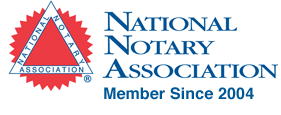
The National Notary Association, founded in 1957, is dedicated to keep notary professionals up to date on best practices, new laws and regulations, and continuing education. Our company President is proud to have been a member since 2004, and was a featured speaker at their 2018 National Conference and served on the Revision Commission for the Notary Public Code of Professional Responsibility of 2020.
Notaries
A Notary Public is "commissioned" (i.e., licensed) by the Secretary of State [to perform notarial acts].
Notarial functions include:
- administering oaths and affirmations;
- taking affidavits and depositions;
- receiving and certifying acknowledgments or proof of such written instruments as deeds, mortgages and powers of attorney; and; demanding acceptance or payment of foreign and inland bills of exchange, promissory notes and obligations in writing, and protesting the same for non-payment
The above information appears courtesy of the New York State Department of State website. As of April, 2017, New York State has about 291,000 licensed Notary Publics.
In addition to “official” acts authorized under law, a notary public is customarily considered to be a trusted member of society, and sometimes may sign and/or witness the signing of documents as a non-notarial act.
Some examples of common non-notarial acts would be to sign and/or stamp the back of a photograph for a foreign passport application, examine identifications documents for employment and other purposes as well as other government and non-governmental forms. While non-notarial acts do not carry the validity of a notarized act, they can be useful for various private or public purposes, as the signature of a notary public is considered by many to convey trust.
Is a Notary a Lawyer?
A Notary Pubic is usually NOT a lawyer, attorney, solicitor, or a barrister. There is no requirment that a Notary Public have a law degree or attend law school. Outside of the United States, a Notary Public often does have a significant amount of formal legal training and a post graduate degree, and is either a lawyer or recognized as a similarly qualified professional. While we take our vital role as a Notary Public seriously and with pride, we are not lawyers. We do follow all New York State requirements to be a notary public, including passing an examination from the NYS Department of State. Additionally, we follow best practices while preforming our duties and continually advance our knowledge of the indusity through membership, education and participation with professional organizations.
Affidavit (Jurat) & Acknowledgement
The signing of affidavits and acknowledgements are the two most common notarial acts. An Affidavit is a a written statement confirmed by oath or affirmation, for use as evidence in court. An Acknowledgement is a statement that has been willingly signed once your identity has been been verified.
Living Wills
Living Wills are legal documents, detailing the signer’s wishes regarding prolonging medical treatments. A living will can also be referred to as a health care directive, advance directive, or a physician’s directive.
Should I tip the Notary?
Gratuities are not required or expected. If you feel your notary has delivered extraordinary service, your notary will thankfully accept a tip. Any gratuity paid is not for legal advice, as a notary public is not qualified or allowed by law to provide legal advice.
Affidavit (Jurat)
An affidavit is a document, in which an individual makes a statement under oath or affirms under penalty of perjury that its content is true. The affidavit MUST be signed in the presence of the notary. The affidavit must have the jurat (Latin for oath) printed on it. Otherwise, the notary will attach a separate jurat certificate to the document.
Acknowledgement
An acknowledgement is a notarial act in which the signer of a document recognizes, understands and is aware of the consequences of executing the document by signing it. This act also indicates that the document has been signed under the individual’s own free will and that he/she agrees to the terms and conditions of the document.
Acknowledgements are used for deeds, power of attorneys, etc.
Power of Attorney
Powers of Attorney authorize one party to make legal decisions on behalf of another party. An agent has the power to do the following:
- Act as a corporate officer
- Make financial decisions such as writing checks and withdrawing money from the bank
- or sell real estate
- Pursue legal action and insurance claims on your behalf.
A Power of Attorney grants the authority to act for another person in specified or all legal or financial matters. In other words, a legal document giving power of attorney to someone to be his agent. Once the principal dies, the authority generally ends. You can consult a lawyer for more details.
Sometimes a Power of Attorney will require one or more "disintrested" witnesses. While New York does not prohibit the notary public to act as a witness in addition to being the notary, depending how and where the document will be used, this may not be allowed or is frowned upon. If the witness needs to make an affidavit of what they witnesses, a notary public can not notorize their own statement.
A Notary Public can not draft or help you select a Power of Attorney or any other legal document. Notary NY strongly urges you to seek the advice of a lawyer. Please visit the New York State Bar Association website.
Sometimes a bank or other financial insistuion will request or require a specific form of a Power of Attorney. If you are planning on presenting a Power of Attorney to a bank or other financial insistuion, you may wish to check to see if they have a specific form of Power of Attorney.
Affidavit (Jurat) or Acknowledgement?
Most of the time, a customer will come to the notary with documents that already have the wording for the specific notarial act, usually either an Affidavit or an Acknowledgement. If your document does not have the wording for a specific notarial act, you need to choose, as the Notary Public is not allowed to choose for you. This often happens when the customer prepares their own document. While it is best to always consult with a lawyer on all legal matters, USLegal, Inc.'s website defines an Affidavit and contrasts it with other documents.
Attested Copy
In some states, notary publics do not have the capacity to certify copies. Only the pubic official, who originally issued the document, can issue a certified copy. With an attested copy, which is similar to a certified copy, the document custodian, not the notary, attests to the copy of the document.
In New York, notaries do not have the legal authority to certify copies. However, attested copies (or copies declaration by document custodian) are widely accepted in place of a “certified copy.”
We cannot perform a copy declaration by document custodian if the document is a vital record or a recordable document. Only the appropriate public records custodian can issue copies of these documents. However, we may be able to retrieve such documents on your behalf. Please call us for more information.
Last Will and Testament and other Estate Planning Documents
Last wills and testaments and other Estate Planning Documents are sensitive and complex legal instruments. Depending on the state laws, some wills may require notarization, while notarizing others may invalidate them.
For wills drafted under New York law and/or jurisdiction, the will maker (testator or testatrix) usually signs in front of at least two component witness. Often the witnesses make an affidavit in front of a notary public that they have witnessed the Will being signed by the testator or testatrix. A notary public can not witness his or her own signature as an attesting witness. According to lawinfo.com a witness should be “disinterested” and “not a beneficiary of the Will.” We strongly urge that anyone wishing to have a Will execution where we will be notarizing the affidavit of the witnesses have their lawyer accompany them, or at the very least, have a letter of instruction from their attorney on how the Will should be executed. Wills for people who reside outside of New York, but will be executed within New York may have different requirements, which is just one more reason it is a good idea to make sure your lawyer is available to answer any questions by either in person or by telephone about the Will or its execution, as a notary public can not provide any legal advice. It is also recommend that you have a letter of instruciton from your lawyer if they will not be present to supervise in person the execution of your will and other estate planning documents.
Services such as “Legal Zoom” are not a substitute for legal advice. Legalzoom.com own website say “We are not a law firm or a substitute for an attorney or law firm. We cannot provide any kind of advice, explanation, opinion, or recommendation about possible legal rights, remedies, defenses, options, selection of forms or strategies.” While we provide notary services to the public, we only preform statutory notary public services at a Will execution in the absence of a lawyer presence or letter of instruction with great reluctance. In these circumstances, the testator or testatrix must read and sign a written advisory form that we have informed them of some of the risks of executing a will without a lawyer and that they are doing so against our strong recommendation. For the avoidance of doubt, we think everyone should seek and obtain legal advice from a licensed lawyer before proceeding with a will execution.
Notary New York is not a law firm and cannot give legal advice, nor can we help you prepare any documents. Nothing on this website should be considered as legal advice or relied upon as such. Only an attorney can give legal advice.
Legalzoom® is a trademark of LegalZoom.com, Inc., who is independent of Notary New York.
Notary NY adheres to all New York laws governing the practice and procedures for Notary Publics. These procedures vary from those of other states and countries.
- The document signer must physically and personally appear before the Notary at the time of notarization - not before, not after. A telephone call from the signer or the notary's familiarity with a signature is not substitute for a personal appearance. A webcam/Skype (or any other similar form of technology) appearance is not physically appearing before the Notary.
- Documents should not be signed before appearing before the Notary.
- The Notary identifies the signer through either (1) current government-issued ID card with photograph, signature, and physical description (such as a driver’s license or passport), or (2) personal knowledge of the signer based on knowing the person for an extended period with direct interaction and contact. A photocopy or picture (printed or digital) of the ID is not acceptable. If the image or details of the physical description on the ID card do not establish the identity of the signer to the satisfaction of the notary public, the ID card can not be used.
- The Notary should not be an interested party to any document that they notarize. Notary publics should be independent, impartial, and disinterested to the benefits and obligations in any transaction they notarize. While not strictly prohibited, a Notary should avoid performing any official acts when the Notary’s immediate relative is a party. A Notary must not notarize any document, which in any way benefits the Notary.
- Witnesses to any document that is notarized or signed by a person intended to be a legal document should also not be an interested party. Witness should be independent, impartial, and disinterested in any transaction they witness. The signer of a document, notarized or not should not be the signer(s) themselves. The witness(s) should not gain any material benefit from the document.
Best practices call on the Notary to make a record of each notarization and require the document signer to affix their signature in an official journal of notary acts. This is now a requirement in New York State as of January 25, 2023.
VitalCheck® is a LexisNexis® Company, who is independent of Notary New York.
Medallion Signature Guarantee
A Medallion Signature Guarantee is a special signature guarantee represented by a speail seal for the transfer of securities. Many financal institutions offer this service for free or at a nominal cost, but only to their customers. Occationally, a notary public is asked to provide a Medallion Signature Guarantee. Unfortunately this is NOT something a notary public can do. If you are not a client of a financal institutions that offers a Medallion Signature Guarantee, we recommend you visit eSignature Group for assistance.
Notary Public refusal
Their are many reasons why a notary public may legally decline to notarize a document. Inadequate identification, inability to directly communicate in English, suspicion of unlawful or other improper purposes, or indication that the signers is under duress to name a few legal reasons why a notary may refuse. A notary may also refuse outside of established business hours, or if it would be an undue inconvenience, such as a large number of documents just before leaving the office. In these examples, the notary public's objection is temporary, and would be willing to notarize at another time and/or place when it won't unreasonable interfere with the notary public's other duties and obligations.
The National Notary Association Code of Professional Responsibility states that a notary "shall not refuse to perform a lawful and proper notarial act because of the signer's race, nationality, ethnicity, citizenship, religion, politics, lifestyle, age, disability, gender or sexual orientation, or because of disagreement with the statements or purpose of a lawful document". While New York's Notary law does not specifically ban these practices, other Federal, State, and Local laws do, and can subject a notary to civil liability for illegal behavior.
The code also states that notaries "shall not refuse to perform a lawful and proper notarial act solely because the signer is not a client or customer of the Notary or the Notary's employer". Besides being a bad business practice, it could be illegal for a notary to selectively decide who they will notarize based on the lack of any other business relationship or service being provided to the customer. As a Notary Public is covered under the NYS Public Officer Law, a notary should make their services available to all. The law states that it is "Official misconduct" for any pubic servant to "knowingly refrains from preforming a duty which is imposed upon him by law or is clearly inherent in the nature of his office".
A notary may not compel you to purchase any product or service as a condition of preforming a notarial act. While we are hopeful you will avail yourself to our other services, such as obtaining an Apostille or having us UPS your document, you are not required to use any other services if you only want a notorization.






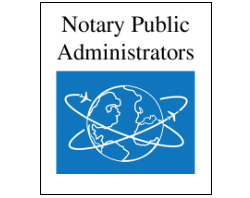

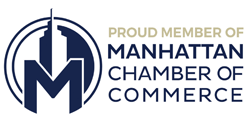
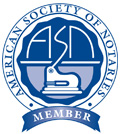
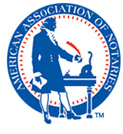
 About Notaries
About Notaries About Notaries
About Notaries